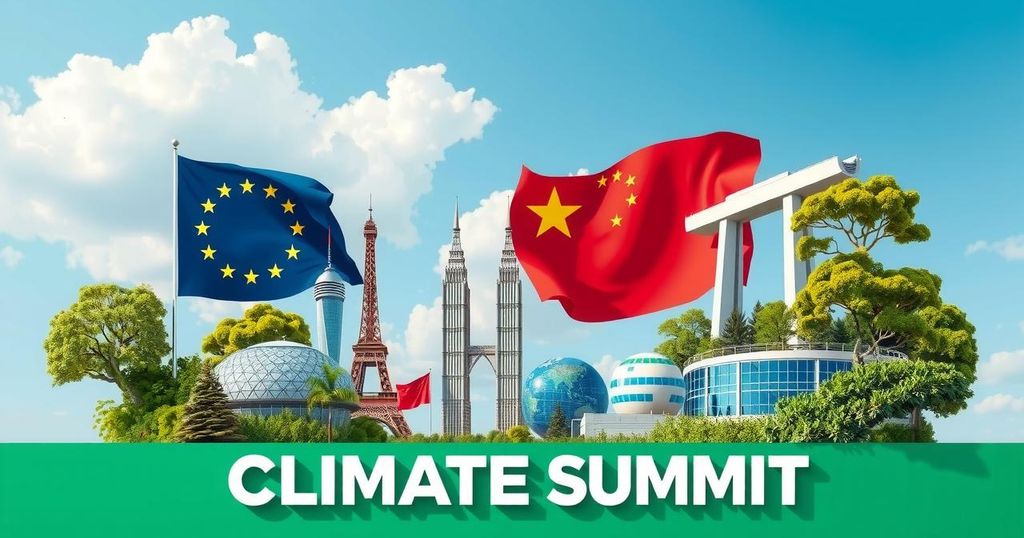UNICEF Report Warns of Escalating Climate Threats to Children by 2050
UNICEF’s report warns of a dramatic increase in climate threats to children by 2050, predicting eight times more extreme heat and three times more flooding. With projections of rising wildfires and severe impacts on vulnerable regions, the health and educational prospects of children are at risk. Immediate action is vital to prevent a worsening climate crisis affecting future generations.
A recent report by UNICEF outlines a concerning forecast regarding climate change and its imminent threats to children by the year 2050. If no proactive measures are taken to mitigate climate issues, the data indicates that the prevalence of extreme heatwaves affecting children will increase eightfold, while flood occurrences will triple. Moreover, the report anticipates that nearly double the number of children will be at risk from wildfires compared to the levels seen in the 2000s.
Regions including South Asia, the Pacific, the Middle East, and parts of Africa are projected to experience the most significant impacts, coinciding with an increase in vulnerable child populations. As extreme weather events and pollution become more commonplace, the essential health, educational opportunities, and mental well-being of children are already under threat. This alarming scenario lays the groundwork for a heightened risk for future generations if action is not taken to address these pressing challenges.
The issue of climate change and its repercussions on children’s welfare is becoming increasingly severe. UNICEF’s findings emphasize the disproportionate vulnerability of children to such environmental crises, as they are more likely to suffer from health complications, malnutrition, and psychological effects. Approximately one billion children currently reside in countries that are particularly susceptible to environmental disasters. Addressing these risks is paramount not only for the immediate protection of children but also for ensuring a sustainable future for forthcoming generations.
In conclusion, the warnings issued by UNICEF highlight an urgent need for global leaders to take decisive action against climate change. The significant projected rise in climate-related threats to children by 2050 necessitates a collective response to protect the most vulnerable members of society. Without immediate efforts to reduce emissions and safeguard children’s rights and well-being, the outlook for future generations remains precarious, marked by escalating inequities and environmental hazards.
Original Source: www.dailyclimate.org




Post Comment